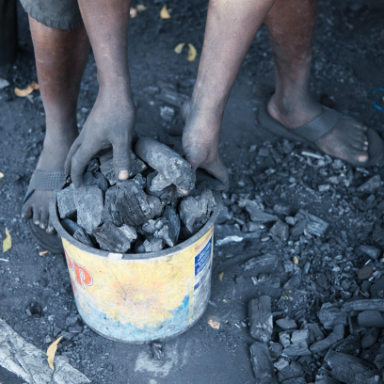Impact


Sustainable Development Goals
Affordable and Clean Energy
Affordable energy for cooking is an essential form of energy access.
Women and Children
Using LPG reduces the use of unhealthy charcoal and kerosene which disproportionately impacts women and children; safer and more efficient use of householders’ time (no need for collecting wood and shorter cooking times); improved use of time in the home for study and work.
Improved Health Outcomes
Reducing charcoal and kerosene use results in improved air quality (particulates) within households and safer food preparation.
Climate and The Environment
Using LPG replaces charcoal, a fuel which is consuming scarce forestry resources. It reduces CO2 and black carbon emissions.
Poverty Reduction
The Circle Gas target market is the urban low-income population. Our service provides meaningful savings for customers while creating thousands of high-quality jobs.
Innovation
Circle Gas is investing in research and innovation in Africa which will bring cutting-edge technologies to the mass market in developing countries.
Sustainable Cities and Communities
Circle Gas focuses on dense urban areas which lack basic services infrastructure. It also helps improve the living standards for all by improving air quality and reducing dependence on often illegal charcoal sellers.
LPG and the Environment
Switching from harvested wood to LPG has profound climate mitigation impacts, as well, reducing net carbon emissions by 67% .
Deforrestation
Demand for charcoal results in uncontrolled harvesting of woodland, leading to often illegal deforestation.
Black Carbon
When charcoal burns, it releases black carbon, considered to be a major indoor air pollutant.
Indoor Air Pollution (IAP)
IAP can be any particulate matter which contributes to poor health outcomes and is often a result of burning charcoal and kerosene.
Energy Efficiency
Gas stoves are much more energy-efficient than traditional charcoal stoves.
Health and Safety
Used properly, LPG is a safe product used by billions around the world, and in Kenya and Tanzania it is considered a fuel of choice for those who can afford it. Our customer care team ensures that LPG can be used safely in each customer home. At each visit to a customer home, safety checks are performed.
We only use Circle Gas cylinders, which comply with local and international regulation, and source high-quality piping. Only skilled employees interact with the customer at initial installation and replacement of the cooking gas cylinders so that we can ensure safety and safeguarding procedures are followed.
Social and environmental benefits
Clean cooking solutions are badly needed throughout the developing world, particularly in sub-Saharan Africa, where most families use expensive and polluting cooking fuels such as charcoal, biomass and kerosene, every day.
Cooking with such fuels has serious impacts on the respiratory health of children and women who disproportionately bear the cooking responsibilities. The intense demand for charcoal in urban centres means that forest stocks are not sustainably managed but rather sacrificed to produce charcoal.
Today, LPG is a clean cooking solution used globally by over 3 billion people, yet it remains mostly unaffordable in sub-Saharan Africa. The social benefits of LPG for cooking include the enhanced safety of women and children, improved health outcomes, lower-cost energy access and reduced environmental impact, contributing to climate change mitigation.